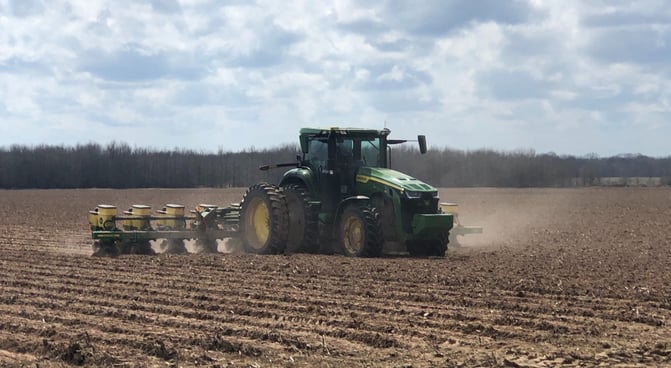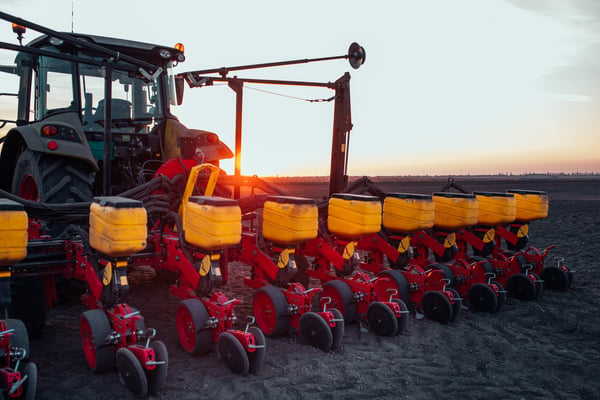Prepping for Planting Season
With planting season within view, we want to provide our farmer customers with all they need to get up and running with minimal equipment issues. We know our farmers cannot miss a day of planting, so it is imperative to take the time to properly prep your tires and equipment before planting begins.

Planters
A planter with an incorrect setup can decrease your yield. So, inspecting your planter in the spring is an essential part of ensuring you have a successful year in the field.
Start by walking around your planter and checking to see if there is anything out of place. If you see cords sticking out, wheels that are out of alignment, cracks in the tires, or anything else out of the ordinary, it may cause a problem once you’re in the field, so it is good to get it checked out beforehand. After taking a few laps around your planter, it is time to take a closer look at the planter’s components. You want to inspect everything from the software on the inside to the tires on the outside. Check for any wear on the hydraulic components, the no-till colter blades, disc opener blades, and scrapers.
Tillage
Before you hook up your tillage equipment, it is important to give it a once-over to ensure no apparent equipment issues. Soil is not easy on tillage equipment, so be sure to pay particular attention to any parts of the equipment that touch the ground, including the tires.
It is also essential to give special attention to the sweeps, chisel points, disc blades, down-pressure springs, shovels, and hydraulic components for any wear or broken parts. Make sure to make any repairs before planting season so you avoid running into any issues.
Tractors
Your tractors are critical to any successful farming season, so you will want to be sure any tractors you need for planting season are tuned up and ready to go.
If your tractor has been sitting all winter, you’re going to want to check the fluids since they can build up with harmful particles after sitting for an extended period. Test the engine oil and if there are any questions on its quality, change it before putting the equipment into service.
The last thing you will want to inspect is, of course, your tires. Be sure to check the tread depth, tire wall wear, and tire pressure before heading out into the field. A flat or blown-out tire can cause delays during planting, which is preventable downtime. To check your wheel bearings, listen for any popping, squeaking, or grinding noises when your wheels are in motion. Replace your bearings If you hear anything out of the ordinary.

Here are a few extra tips to help you inspect your tires this season:
- Check tire pressure, adjust up or down if needed.
- Look for sidewall cracks, cuts, or other damages like bubbling.
- Examine tread and consider replacing if there is less than 20% tread left.
- Inspect tread areas for stubble damage and exposed cords and replace tires with apparent damage.
- Study the ground contact area to ensure there is no gap between the lugs and the ground.
- Watch for cracks, corrosion, and debris on valve stems and make sure they’re clean and intact.
- Survey and fully tighten nuts and bolts.
We wish you the best of luck this planting season, and as always, the experts at CFI Tire can help you answer equipment questions you may have. We have decades of experience in the farming industry and are eager to help.



